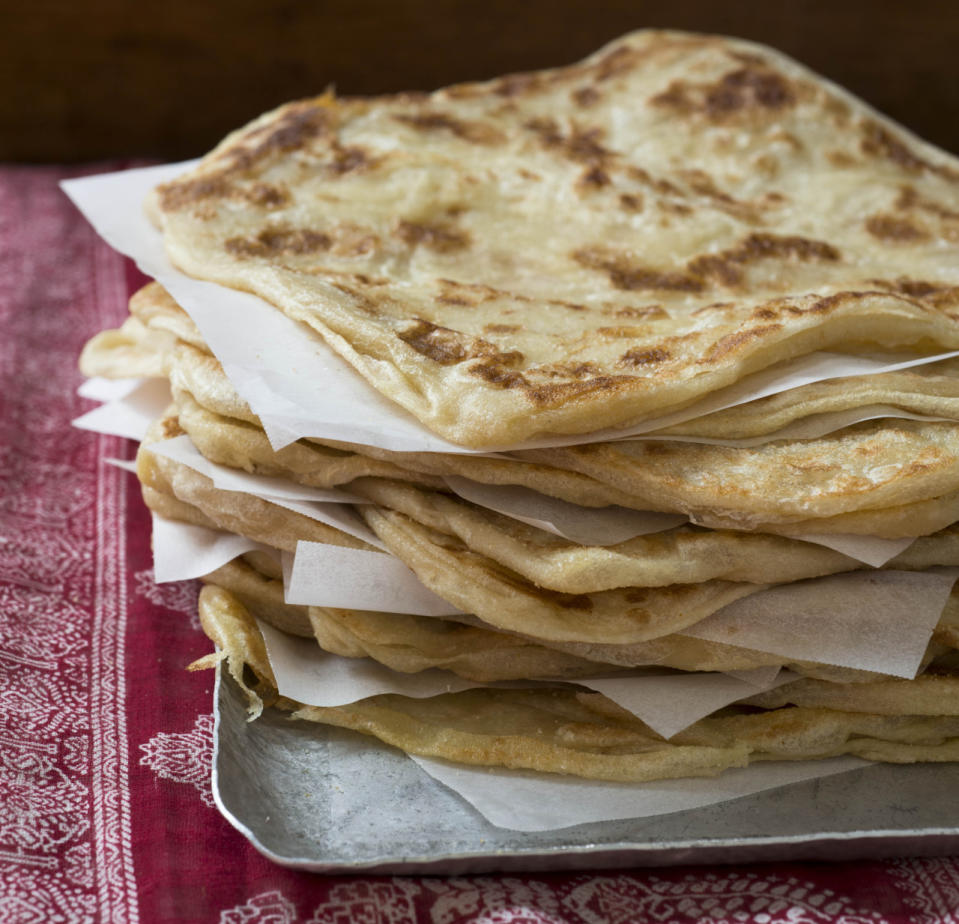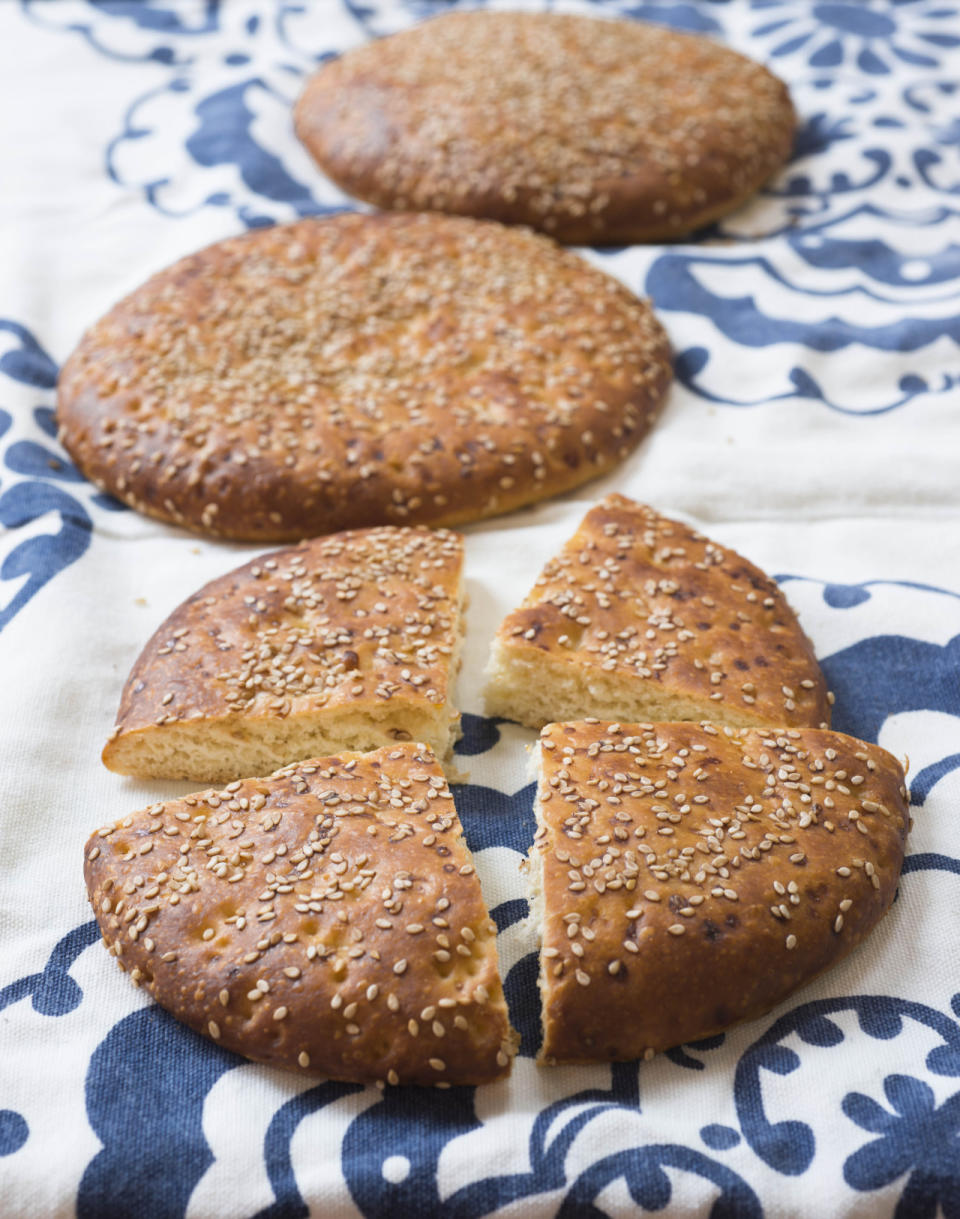Yahoo Food’s Cookbook of the Year: ‘The Hot Bread Kitchen Cookbook’

The year 2015 was a fantastic year for cookbooks. The NoMad Cookbook is one of the most stunning books of the year, and Mimi Sheraton’s 1,000 Foods to Eat Before You Die has us planning more than a few eating trips. And then there are the books that will shape — nay, change — the way we cook and eat on a daily basis. Thanks to Travis Lett’s lush and generous Gjelina cookbook, the pizza stone is coming out of storage, while Heidi Swanson’s quietly beautiful Near & Far will be our go-to for the kind of cozy soups and creative salads we crave day and night.
Still, when a cookbook combines appealing, accessible recipes, compelling personal narrative, and a powerful — not to mention timely — social mission, there really is no contest. In fact, the Yahoo Food team was unanimous when it came to choosing our cookbook of the year.
The Hot Bread Kitchen Cookbook is the book companion to the social enterprise founded in 2008 by Jessamyn Waldman Rodriguez, who previously spent a decade working in government, at nonprofits, and for the United Nations. To the outside world, Hot Bread Kitchen is a full-scale commercial bakery, located in the East Harlem section of New York City and selling a dynamite range of international breads at places like Whole Foods Market and Dean & DeLuca as well as at Hot Bread Kitchen greenmarket stands throughout the city. You can also buy many of their breads online. But that’s really just the beginning of the Hot Bread Kitchen story and its incredible mission.
Hot Bread Kitchen’s Bakers in Training program offers paid on-the-job training to women from diverse backgrounds and cultures. This includes baking lessons, professional development, language classes, and ultimately job placement. Paying their trainees makes the program “economically viable for even the lowest-income women,” explains Rodriguez. The training itself, along with job placement, gives these women access to jobs that pay better and offer opportunities for benefits and promotions. In other words, it’s not just about finding jobs; it’s about building careers. Plus, the organization has another, even wider-reaching goal in mind.
“By empowering immigrant and low-income women to launch new careers in the culinary field, we are setting the stage for the managers of tomorrow,” says Rodriguez. “My hope is that by creating a pipeline of skilled bakers and encouraging them to feel confident in their value, employers will recognize the necessity of living-wage pay.” In keeping with this larger mission, Hot Bread Kitchen also runs an incubator program that offers commercial kitchen space and business support to food entrepreneurs.
In the book, Rodriguez goes deeper into the organization’s history and mission and shares individual stories of the women who have benefited from the program. We meet Luela Osmanaj, a native of Albania who has a natural talent for baking and, thanks to a background in accounting, is a whiz with numbers. She’s now a bakery manager for Hot Bread Kitchen, but perhaps more important, she has greatly improved her English and found a supportive community at the organization. Margaret Raymond is another success story. Originally from Guyana, Raymond struggled to find meaningful work in the United States, but she thrived at Hot Bread Kitchen and now works at another New York City bakery, Amy’s Bread.

Buttery, flaky Moroccan bread. (Photo: Jennifer May)
These women — and Hot Bread Kitchen’s unique model — are essential, but it’s the bread that pulls the mission together. In joining Hot Bread Kitchen, each baker brings her own unique baking traditions and bread recipes, which means Hot Bread Kitchen is able to produce and sell an incredibly diverse and delicious assortment that includes whole wheat chapatis from Bangladesh, Iranian nan-e qandi, Sephardic challah, and tortillas from Mexico.
On any given shift, says Rodriguez, you can find women from Morocco, Nepal, Senegal, or 23 other countries baking together. They may come from different backgrounds and speak different languages, but food brings these women together and, in a way, becomes its own language.
“Food is universally significant,” says Rodriguez, and at Hot Bread Kitchen this makes for an incredible exchange of recipes and culinary knowledge, much of which is captured in the cookbook. Most of the recipes are for bread, including German stollen, Italian ciabatta, Indian paratha, and m’smen, a Moroccan flatbread. But you’ll also find nonbread recipes, such as Ethiopian doro wat, Vietnamese roast pork belly bahn mi, Bubie’s chicken soup, and Ecuadorian-style shrimp ceviche. This makes the book more than just a resource for bread; it’s a cookbook you can use on a regular basis.

Nan-E Qandi. (Photo: Jennifer May)
Of course, if you do want to make bread, The Hot Bread Kitchen Cookbook has you covered. In addition to the recipes, you’ll find an introduction to basic bread baking, an overview of ingredients and equipment, and pointers on everything from shaping breads to filling dough to creating seasonal focaccia variations.
We’re not the only ones to fall for The Hot Bread Kitchen Cookbook. Rodriguez reports that the response has been fantastic: “Readers from all over the world have been sharing photos of the bread they bake using the hashtag #HBKCookbook.” While the recipes are solid and the photos are beautiful, it’s really the concept that’s winning people over.
“The idea of Hot Bread Kitchen — the United Nations of Bread — resonates amazingly well with people,” notes Rodriguez. “Most people have a woman in their lives that bakes for them, [and] because we share this experience, the idea of Hot Bread Kitchen gets amazing traction.”
The cookbook is bringing that experience and an important message out into the world, and the next step is expansion, first in other U.S. cities and maybe even around the world. “Our goal is to change the face of the industry,” states Rodriguez. “As long as there is a market for good bread and a need for jobs, we are open to all options.” There’s also no reason why the Hot Bread Kitchen approach can’t be used to help solve more of the problems we face today, from immigration and refugee issues to wage justice and gender equality. Bread just happens to be the model Rodriguez chose, and for good reason. “It’s universal — and delicious.”
Holiday and gift ideas from Yahoo Food:
Scrumptious Gift Ideas for Every Food on Your List
20 Cookbooks Perfect for Gift Giving
The Perfect Gingerbread Cookie Recipe, from Bouchon Bakery

